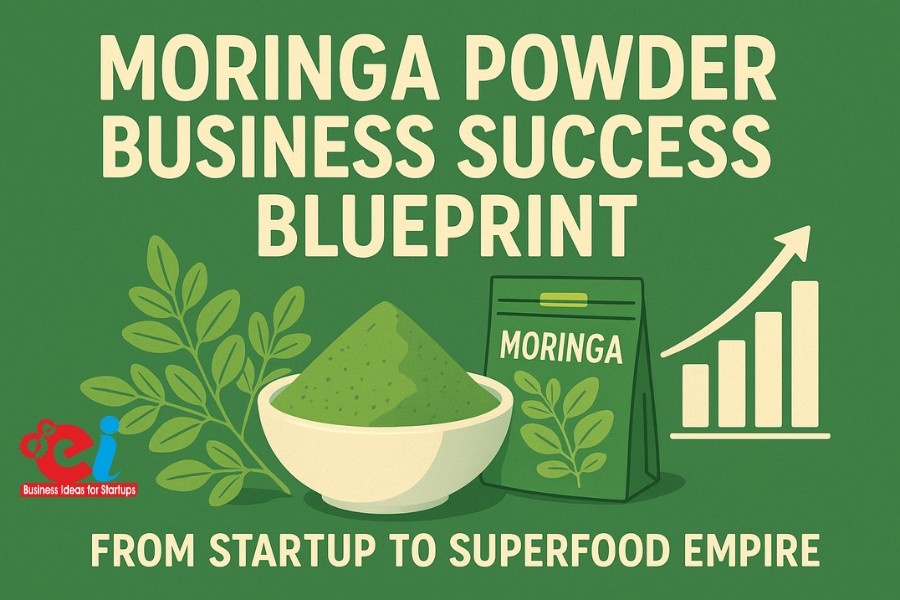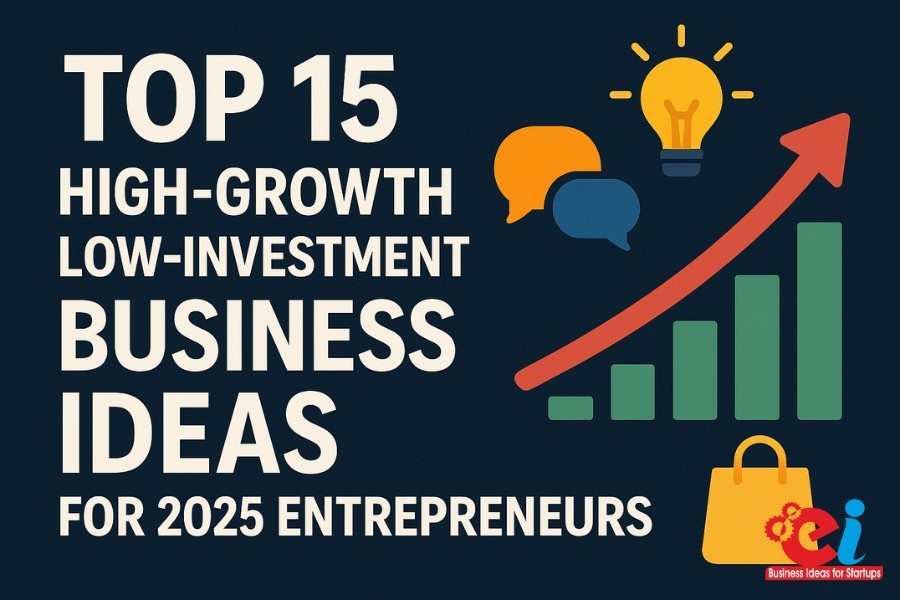Unquestionably, the Moringa Powder industry is one of the newest components of the marketing health products sector. Moringa is gaining enormous attention and use in health supplements, food additives, and even cosmetics, bolstering its impact with an extensive list of nutritional advantages. Its popularity has soared, earning it the title “miracle tree.” Investors seeking wellness businesses that offer impressive returns and growth are likely to find the moringa powder business most satisfying.
This guide examines the financial aspects of starting a moringa powder plant, factoring in operational capital along with the initial setup expenditure. Considering that the global market value of moringa in 2022 was $9.5b and is projected to increase at an 8.5% CAGR to $18.2b by 2030, there appears to be no limit to the opportunities available for risk-taking investors willing to spend.
This article is aimed at appealing both to small scale starter companies and those bold enough to build vast full scale manufacturing facilities. It includes detailed insights on everything related to investment requirements, equipment purchasing, operational costs and profits, and with respect to the moringa powder industry.
Market Analysis
Global Market Size and Growth Trajectory
The demand for Moringa has significantly increased over the last few years due its globalization and increased awareness of the health benefits associated with it. According to a recent report, Moringa powder business products market size was valued at $7.79 billion in 2021 and is expected to hover around $14.80 billion by 2028, indicating a healthy CAGR growth of approximately 9.63%. However, new estimations put the market at around $9.5 billion in 2022, projecting it will expand to $18.2 billion by 2030, marking an estimated CAGR of 8.5%.
This unprecedented growth is primarily driven by:
- The increased interest in natural immunity-boosting supplements showcases the health-conscious trend among consumers after the pandemic.
- The rising awareness of Moringa as a rich source of vitamins, minerals, antioxidants, and proteins.
- The changing landscape from being supplement-only focused to food, cosmetics, and pharmaceutical products.
- Stronger demand for organic and plant-based alternatives spearheaded by Millennial and Gen Z demographics.
Moringa Powder Business Products Designated Consumers
These individuals are the most dominant consumers of Moringa powder business product :
- Superfood lovers who specialize in vivid nutrient dense foods.
- Ultra fit and sported individuals wanting to have a stock of natural enhancers to their performance.
- Specific need patients suffering chronic ailments such as diabetes or inflammatory conditions.
- Seekers of plant-based proteins within the vegan demographics
- Individuals seeking natural active ingredients in skincare
The Market Can Be Segmented Into
- The powder segment: More than 60% share of the market.
- The oil segment: Garners the most attention from competitors for use in cosmetics.
- The capsules and tablets: Ease of consumption draws higher margins and focus.
- The tea segment: Provides relaxation with minimal effort for new consumers.
Competitor Landscape
The Moringa powder business blends the traditional players with new startups. Key players in the industry include:
- Kuli Kuli Foods (USA)
- Moringa Connect (Ghana/USA)
- Organic India (India)
- Ancient GreenFields (India)
- Green Era Foods and Farms (Nigeria)
Others are encouraged to explore options in:
- Gaining a market share advantage by using organic assurance and sustainable procurement.
- Using vertical marketing (owning the growing and processing market of the product).
- Creating targeted patients will appeal to people with specific health needs.
- Distribute through the internet with direct marketing.
Related: Profitable Moringa Leaf Powder Business Opportunities
Initial Bombardment of Operational Investment Strategies
Land Acquisition and Auxiliary Infrastructure Facility
For small scale production (output range of 500–1000 kg per month):
- Elapsed Time: 0.25–1 acre
- Total Cost: $5,000 to $20,000
- Utility Cost: $2,000 to $5,000
- Construction Costs for Facility (500–1000 sq ft): $10,000 to $30,000
Medium scale production (output range of 1000–5000 kg per month):
- Acquired: 1–3 acres of land
- Total cost: $20,000 to $60,000
- Utility Costs: $5,000 to $15,000
- Construction Cost (1,000–3,000 sq ft): $30,000 to $100,000
Larger scale than 5000 kg per month:
- Acquired: 3+ acres of land
- Cost: $60,000 to $200,000+
- Utilities Costs: $15,000 to $50,000+
- Construction Costs (3000+ sq ft): $100,000 to $300,000+
Equipment and Machinery Costs
- Investment Wages: $3,500 to $65,500 – Culinary Maintenance Stevedorrs of Larger Education Providers
- Basic Cleaning Requirements: $3,500–$655,000
- Drying Mechanisms: $1,000 to $100,000
- Milling and Grinding: $1,000 to $80,000
- Quality Control Packaging: $500–$500
Certification and Licensing
- Basic Licenses: $250–$2,300
- Sector Specific: $9,100 to $28,500
- Export Licenses (if needed): $2,200 to $7,000
Estimates ROI Analysis And Financial Summary
Wholesale Market Revenue Potential
Small scale:
- Price per kg: ~$8 to $15
- Monthly Revenue: $400 to $1,500
Medium scale:
- Monthly Revenue: $20,000 to $37,500
Large scale:
- Monthly Revenue: $80,000 to $150,000
Retail Market Revenue Potential
- Price per kg: $30 to $80
Small scale:
- Monthly Revenue: $15,000 to $40,000
Mid scale:
- Monthly Revenue: $75,000 to $200,000
Large scale:
- Monthly Revenue: $300,000 to $800,000
Value-Added Product Potential
- Teas, capsules, blends: 2-5x the cost of powder
Profit Margins
- Gross Margins: 30-85%
- Operating Profit Margin:
- Small Scale: 15% – 25%
- Mid Size: 20% – 35%
- Large Scale: 25% – 45%
- Small Scale: 15% – 25%
- Net Profit Margin:
- Small Scale: 10% – 20%
- Mid Scale: 15% – 30%
- Large Scale: 20% – 40%
- Small Scale: 10% – 20%
ROI Calculation
Small Scale Business:
- Investment: $35,890 – $234,000
- Revenue: $48,000 – $480,000
- Net Earning: $7,200 – $72,000
- ROI Payoff Period: 1 – 5.5 years
Mid Scale Business:
- Investment: $64,200 – $561,000
- Revenue: $240,000 – $2,400,000
- Net Earning: $48,000 – $480,000
- ROI Payoff Period: 0.5 – 4 years
Large Scale Business:
- Investment: $261,000 – $1,170,000+
- Revenue: $960,000 – $9,600,000
- Net Earning: $240,000 – $2,400,000
- ROI Payoff Period: 0.5 – 2 years
Break-Even Analysis
Small Scale Business:
- BE Production (Wholesale): 1,000 – 3,000 kg/month
- BE Production (Retail): 300 – 800 kg/month
Mid Scale Business:
- BE Production (Wholesale): 2,500 – 8,750 kg/month
- BE Production (Retail): 670 – 2,330 kg/month
Large Scale Business:
- BE Production (Wholesale): 6,250 – 25,000 kg/month
- BE Production (Retail): 1,670 – 6,670 kg/month
Related: Moringa Oleifera Powder. Formulation and Processing of Moringa Oleifera. Moringa Processing Plant.
Conclusion
Moringa powder represents a great business opportunity to enter the rapidly emerging natural health product market. An associated document states, the worldwide market is expected to be valued at $18.2 billion by 2030 creating huge market scrutiny and good for those businesses looking to market consumption opportunism.
The main success factors for a moringa powder business are:
- Focus on quality: Achieving at least the set thresholds of industry standards through product high conformity.
- Focus on production scale: Having enough production capability to moderately satisfy market demand as capacity expands gradually.
- Certification advantage: Gaining access to higher premium markets while acquiring market credibility by certifying documents like organic and GMP permits.
- Value-added strategy: Producing additional products like teas or supplements can generate more financial returns.
- Direct marketing channels: By directly contacting suppliers and end users, intermediary spending is nullified, creating more profit.
- Branding and consumer education: Investment into educating consumers about the health benefits of Moringa builds long-term demand.
Whether big or small, opening a Moringa powder business involves initial expenses. Starting with a small-scale operation costs almost $36,000, ballooning to over $1 million for larger industrial facilities. There also needs to be significant working capital on the operational funding for 3-6 months.
Emphasizing retail while further focusing on value-added products leads to swift ROI between 6 months to 5.5 years. Along with the scale of the business and market focus, this helps accelerate the est. 20-40% profit margins, attracting entrepreneurs.
Substantial profit marks are attainable through efficient allocation of working capital and active marketing in the newly formed Moringa powder sector. Careful strategic planning exploits gaining opportunities in the global wellness market.

















